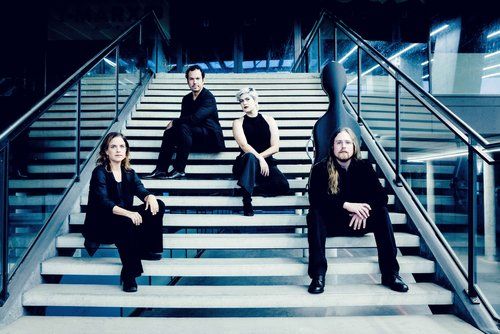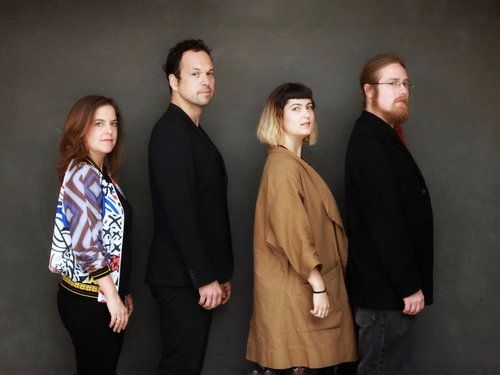Steve Reich: The String Quartets
"I never expected to write a string quartet" - Steve Reich

Seminal Minimalist composer Steve Reich actually wrote three string quartets, all contained on this disc, the first time they have appeared together: Different Trains, Triple Quartet, and WTC 9/11.
The three inspirations for these quertets were, on the order listed above, the music of speech, Bartók and 9/11.“9/11/01”, the first movement of WTC 9/11, was issued as a single on November 18, 2022.
The Mivos Quartet has been performing Reich’s three quartets in one concert since 2016 (at which point they performed them at New York City’s Jwewish Museum); the composer himself asked them to record all three and the disc has Reich’s seal of approval.
Reich embraced the string quartet as a compositional medium in 1988, when he tried working with the quartet as a single instrument cpomprised of four instrumentalists - an extension of his techniques of one instrument going out of phase with itself. His music of the 1980s had also worked with speech melody, and the rsul of the two combined is Different Trains (String Quartet No. 1). The trains in question are those Reich used to take from East to West Coast America, from New York to California in the early 1940’s, after the divorce of his parents; it also echoes the journeys of Jewish children in Germany, to Nazi concentration camps.
WTC 9/11 (World Trade Center, although my musician’s mind initially read "Well-Tempered Clavier!) takes in its first movement, actual recordings of speech at yhat catastrophic event itself, manipulated so that, for example, syllables can be extended. The Mivos Quartet’s urgency is palpable, the music notably disturbing in the first movement, “9/11/01” - samples of actualy people living through that event. The other two movements, “2010” and “WTC” are more coumentary in intent. “2010” at times feels emotionallly neutral, while the third, “WTC,” is unutterably poignant. The music moves into chant, with recordings of those who sat with the dead post-9/11, singing psalms to ease the souls’ journeys into the afterlife.

Inspired by Bartók’s rhythmically vital close to his Fourth String Quartet, Triple Quartet’s outer movements burst with energy (Movement 1; Movement 3); the Mivos performance are impeccable. There score bristles with difficulty; each challenge is met head on by the Mivos Quartet, each one spurs them to greater heights; the central movement is an extended, multi-part canon, as Reich himself describes it. The piece is performed by live quartet with recorded playback.

Different Trains is hugely powerful, its central movement, “Europe - During The War” unutterably poignant. Here’s the opening of that movement. It comes in contrast to the very American optimism of the first movement, “America - Before the War” (which includes recordings of a train porter, and of Reich’s own governess: Part 1, Part 2 & Part 3), and leads to the finale, “After the War,” an emotional tiour de force that takes a section of the first movement and completely transforms it, the train whistles now part of the texture (and even melodic): listen here.
A fascinating, often beautiful disc. The sound is superb - simply impeccable, and the performances finely-honed and supremely attuned to Reich’s soundworld.
